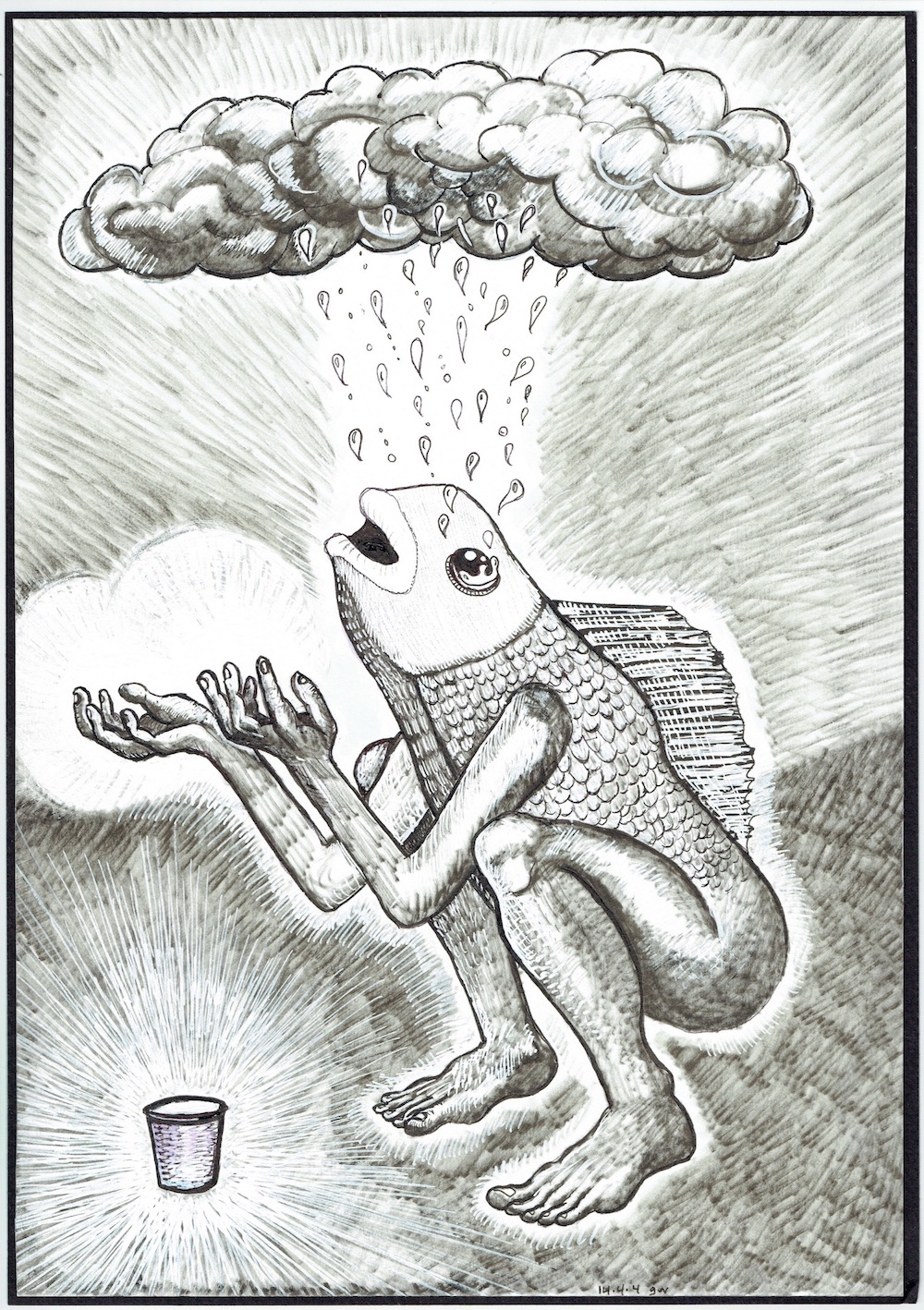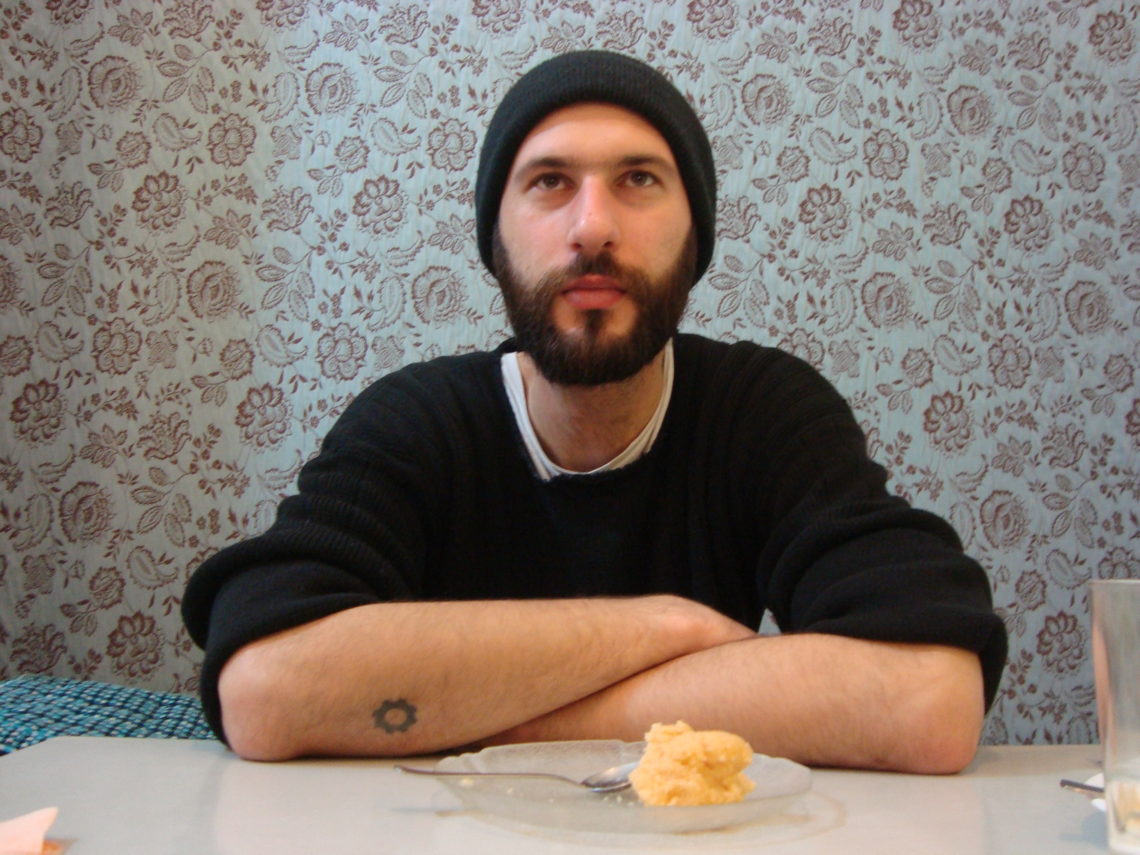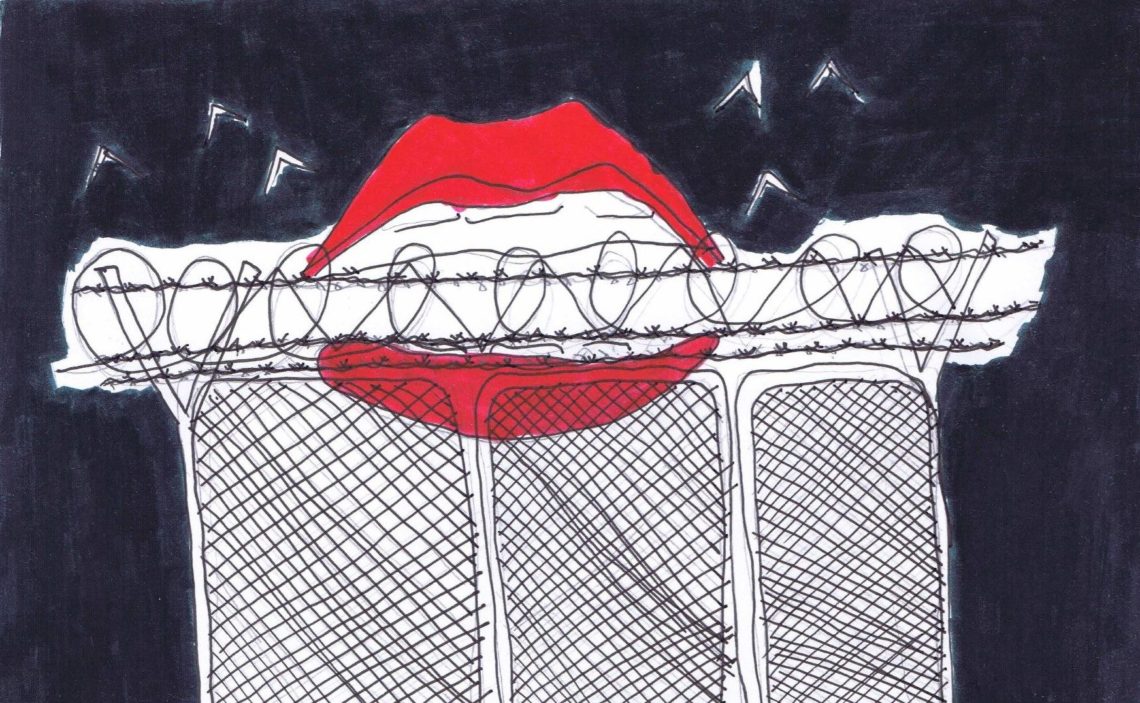-
Five poems from “Friends with Everyone” by Gunnar Wærness (translated from the Norwegian by Gabriel Gudding)
Artwork by Gunnar Wærness
32. (such a friend to everyone / march 23 2015)
the shadow of the homeland
is a sea that follows us in our journey
it waits for us beside the rivers
that resemble blue intestines spilling out of the folds
of the map we stolenow i conjure from this tangle
of viscera and bowels
this carcass we once called the world we chased it with swords
first in boats then in books and at last with this
one bare hand that burns here on your thigh goddess
which you now ignore as you answer saying if you want to fuck
comrade you have to stop calling me mommathese are not my words that are crawling down the edge
of the map of the world drawn with crushed cochineal
soot and blood on vellum here where the seas have grown small
and the countries have disappeared while the rivers have risen
and the coasts have swollen like hearts and lungs and livers
all leading straight to the campsite we came from
which we modestly called the centerbut you understand the map we stole
is read best by those who made it
i held it upside down
and used the ocean as a lens
and saw other people out there conjuring
their own songs their own booksthe past is like the future out there
as water is like water i used to think
that not everyone
can write their own histories
and i sang for the people in campsmoke
and griddle grease for food and shelterbut here they’ve gone and done it
written their own history
with blood and gunpowder
cock and pussy here and now then
the people are a lion’s den i sangwhich other people enter from which few return
and everyone we run across becomes us becomes uswhat kind of fucking song is that the people ask
i reply it’s not a song it’s a vision
and you’re not supposed to sing along
you should just learn it by heart
and live accordinglyand they painted me with hot tar
and rolled me in feathers you who are such
a friend with everyone
you can’t live with us walt fucking whitmanso the story began
by counting all the others
who were chased from their fieldsthere were hardly seventy souls
on the heels of one they called the prophet
four lifetimes later they were six hundred thousandand the first to call themselves a people
a bowlshaped word that can be sailed like a boat
and shut like a casketand opened like a book
to dwell there means to be
not only many
but exactly how many -
Global Voices Interviews *Croatia* Marko Pogačar & Andrea Jurjević
In conversation with JP Apruzzese

Reading Marko Pogačar’s poetry is like walking into an empty field only to realize that it is teeming with life. Things begin to crawl up through the surface and emerge from the sky and become more real, more important, more meaningful, more consequential the further we allow him to guide us through this uncertain world, which we soon learn is our own. Perhaps his shift in vision comes from being a child witness to the violent fracturing of his world – what was once Yugoslavia – where the promise of unity,
-
Four “Corn Songs” by Kinga Tóth (translated from the Hungarian by Timea Balogh) Drawings by Kinga Tóth
Corn Songs
song five
they pierce the ground with spoon straws
that’s how the roots will breathe
that’s how they’ll pull them out when they’re ripe
the others arrive behind the diggers
they write with felt pens
take away the dialect and unsettle everyone
they piss with their legs apart
and that’s when they forget what
they talked about at harvest time
they take the tongues out of their mouths
with which they were understood
and take pictures till they are distracted from the conversation
only the spoon-holding hands remain
squatting they examine the air-bagged roots
this will serve as amnesty and the writers
will be the only ones permitted to speak


